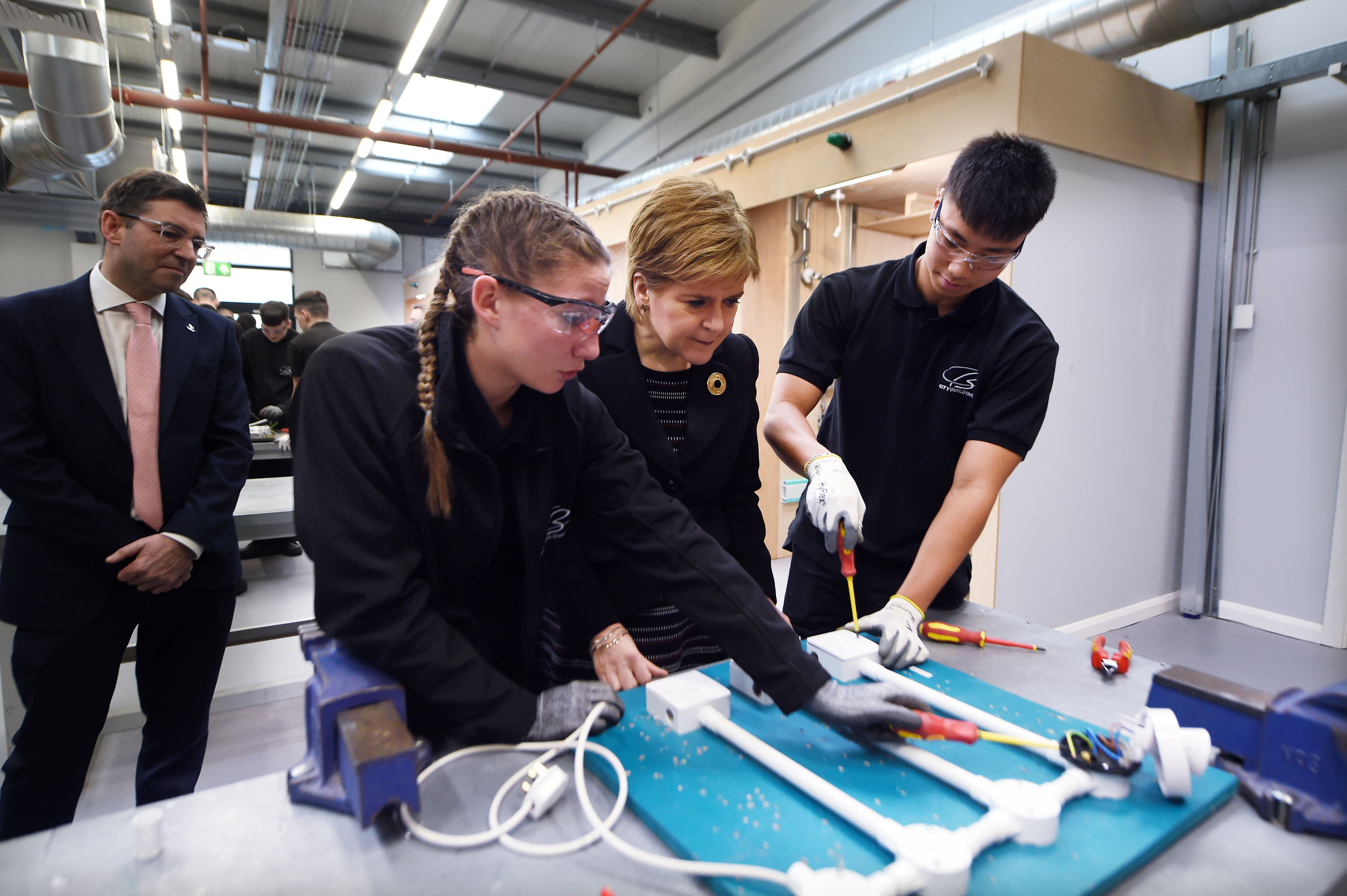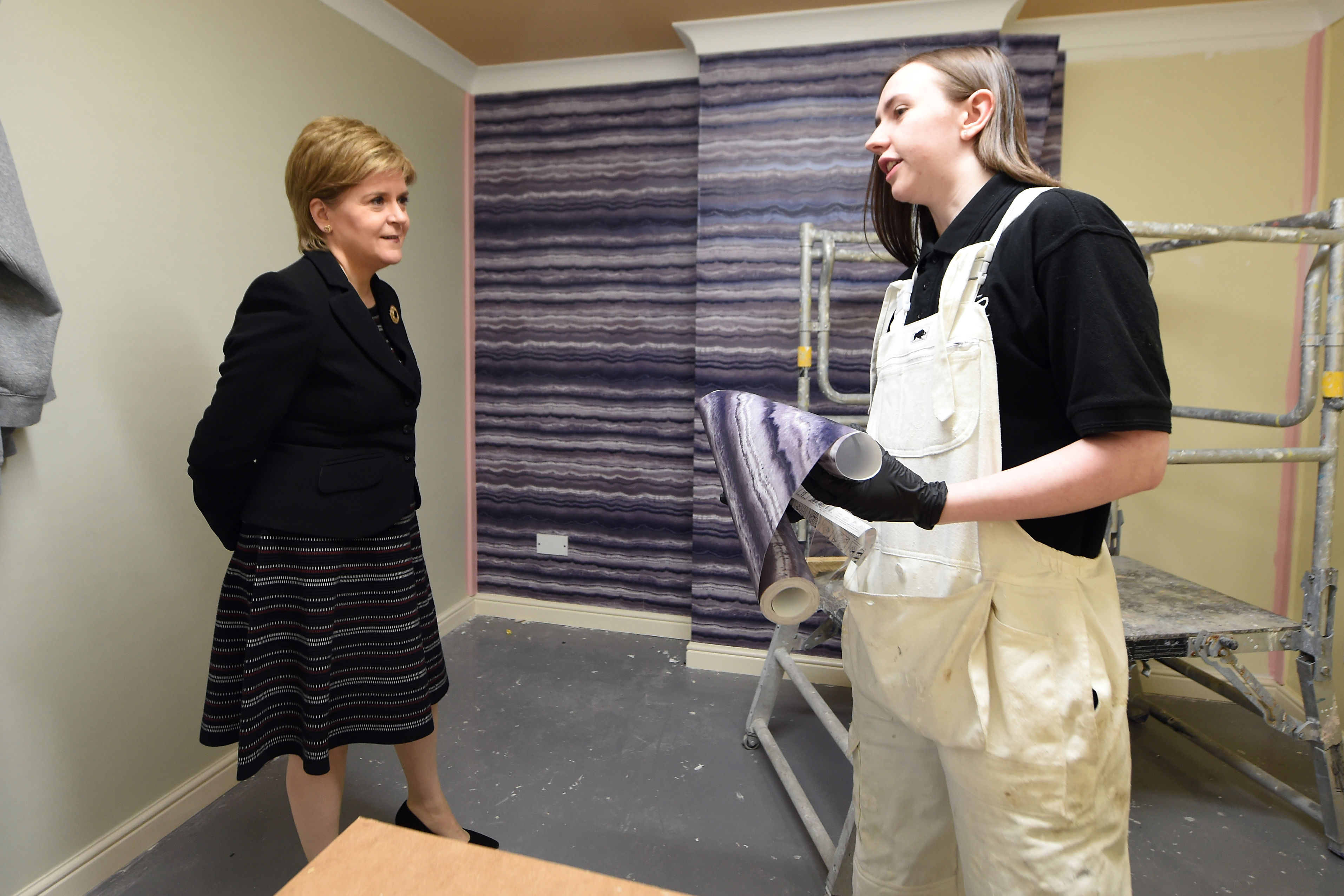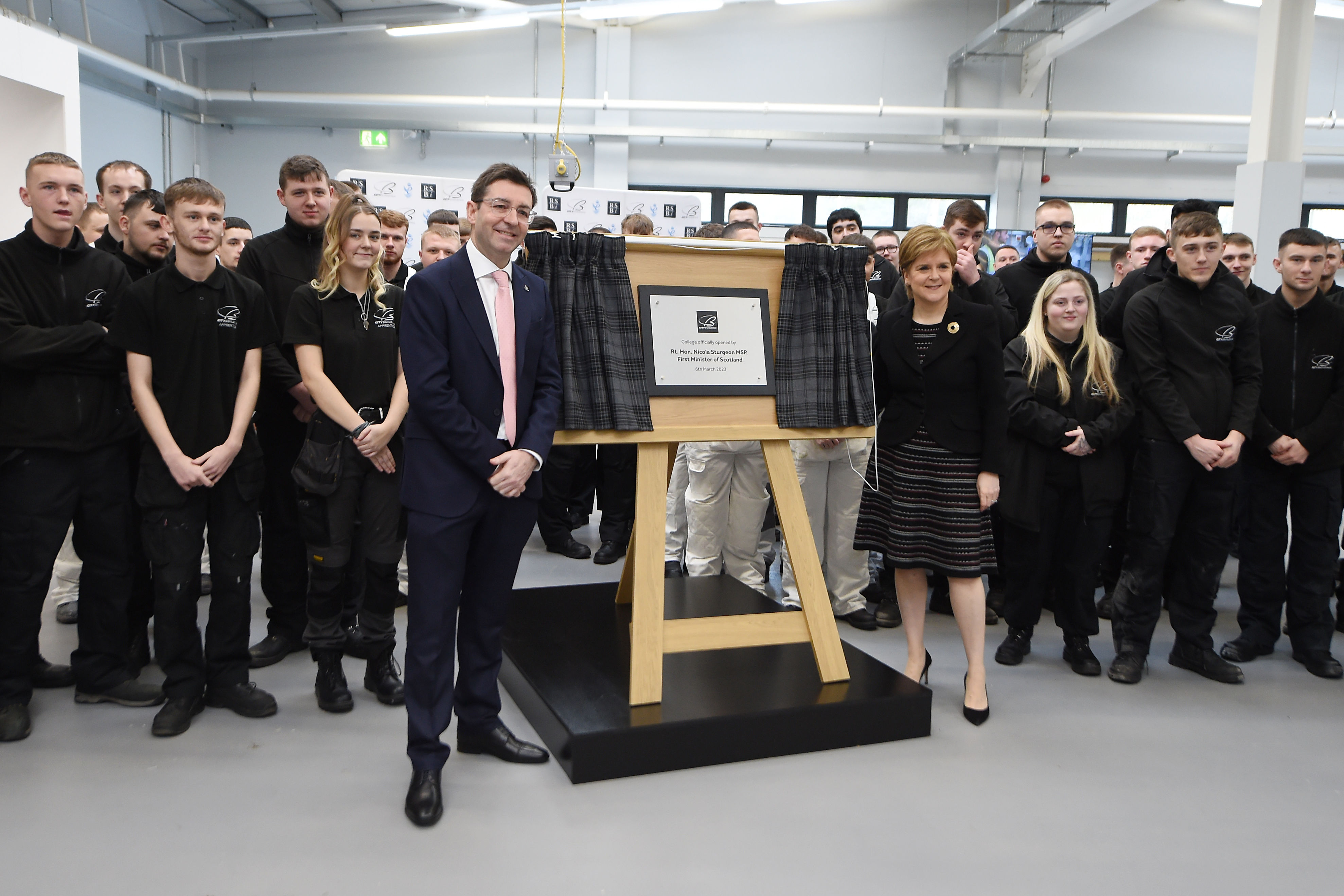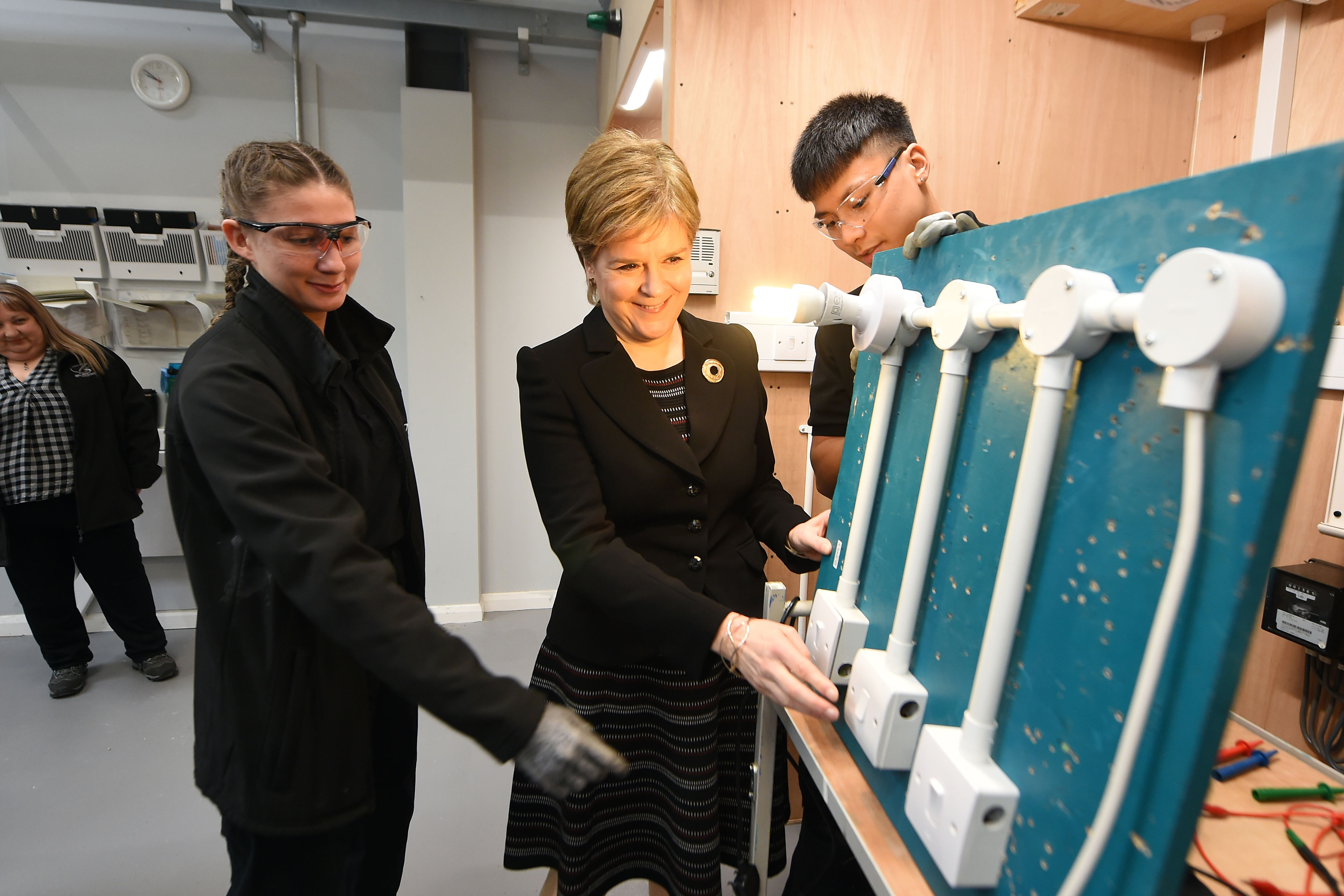First Minister opens City Building college

Nicola Sturgeon has officially opened City Building’s new state-of-the-art training college.
Its design utilises solar panels which will provide sufficient energy to power the entire building, with any surplus energy being used for Royal Strathclyde Blindcraft Industries (RSBI’s) adjacent manufacturing site to help reduce costs.
The building has also been installed with air-source heat pumps which will provide low-cost, environmentally friendly heat, making it one of the country’s most sustainably built and operated colleges.

The college will house up to 250 apprentices across a range of disciplines. Alongside newer trades and skills within the renewable and technology sectors, traditional trades such as stone masonry, brickwork and wet trades will also be taught which will be vital to the restoration and maintenance of many of Scotland’s historic buildings.
This diversity of skills deployed by City Building is a core reason for the new college which will become one of Scotland’s largest teaching centres for trades learning and development.
The building was constructed entirely by staff and apprentices of City Building. The First Minister met some of those involved to learn more about how the college will be developing the workforce which will drive the country to net zero by 2045.

Alan Burns, executive director of City Building said: “It is fantastic to welcome the First Minister here today to officially open our new training college. The college is a significant investment for our business and will form the basis of our skills agenda for decades to come.
“If the country is serious about achieving net zero then it will be these young men and women who will be critical to delivering this goal, and with this new facility we are also preparing them with lifelong skills.
“City Building takes enormous pride in being Scotland’s largest apprenticeship employer and the new facility demonstrates our commitment and ambition as a business. Up to 250 apprentices will learn their trades here, every single year, and develop the skills the construction industry needs for now and in the future.
“As a former apprentice myself it is a very exciting time to be a part of City Building.”

The state-of-the-art facility was officially opened at the start of Scottish Apprenticeship Week, which is taking place from 6 to 10 March to put a spotlight on the positive impact work-based learning has on businesses, people and the Scottish economy.
First Minister, Nicola Sturgeon said: “The Scottish Government recognises the role apprenticeships play in unlocking potential for the benefit of Scotland’s economy. Growing our workforce is crucial, which is why we must continue our work to increase opportunities for young people by providing them with quality work-based training.
“Apprenticeships also support economic renewal and key priorities, including our net zero ambitions. Facilities like this will be critical in building the next generation of workers who will deliver the vast change needed, not just across the construction industry but across our entire workforce.
“Whether it be installing new renewable energy sources such as solar panels or repairing and maintaining brick work in some of Scotland’s most historic and treasured buildings, the skills these young people learn in this very college will be used to deliver net zero for the entire country.”

Scotland’s skills agency, Skills Development Scotland (SDS) administers Scottish Apprenticeships and co-ordinates Scottish Apprenticeship Week.
Chair of Skills Development Scotland, Frank Mitchell, commented: “Designed by industry, for industry, apprenticeships not only help the economy but also create sustainable jobs across all parts of Scotland. These opportunities have been taken by individuals from across society, including many young people traditionally with restricted opportunities to progress who have gone onto flourish in the workplace.
“These are real jobs backed by employers who contribute £10 for every £1 spent by government, and at the same time apprentices contribute by paying their taxes.
“Creating a diverse and inclusive workforce through work-based learning is benefiting employers as apprentices enable them to adapt and sustain their business.”






















